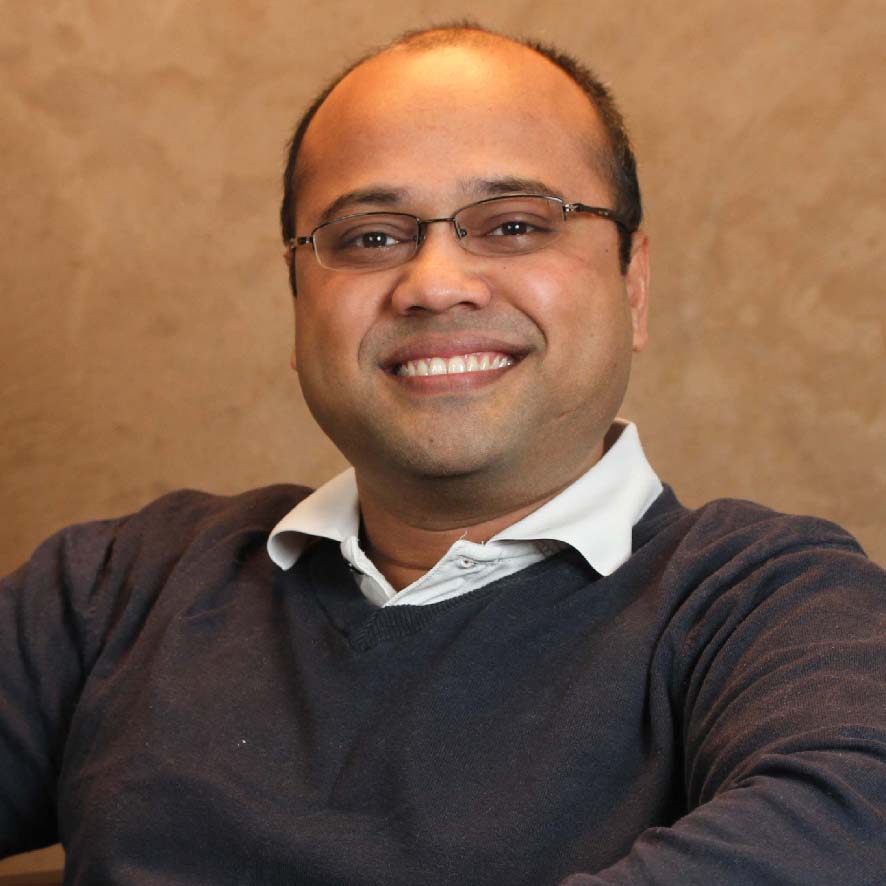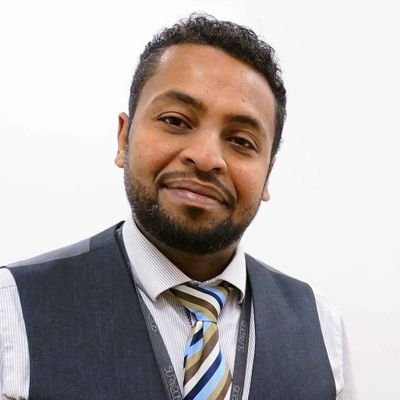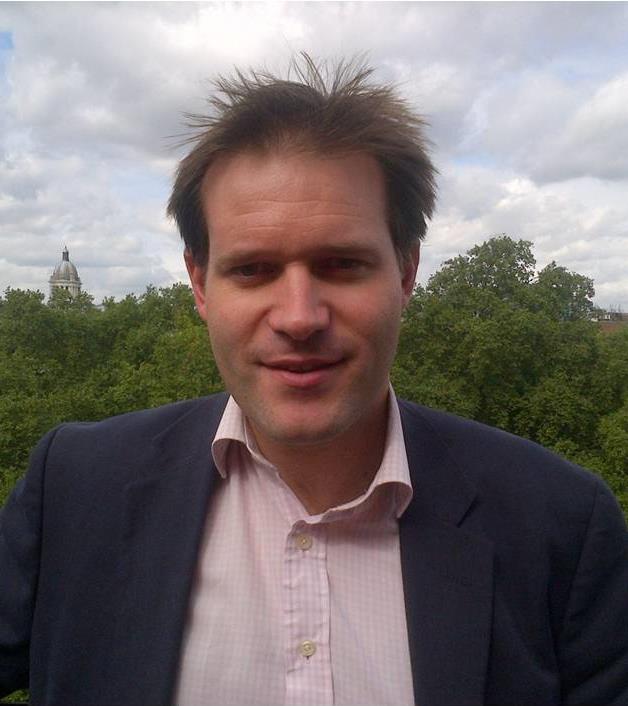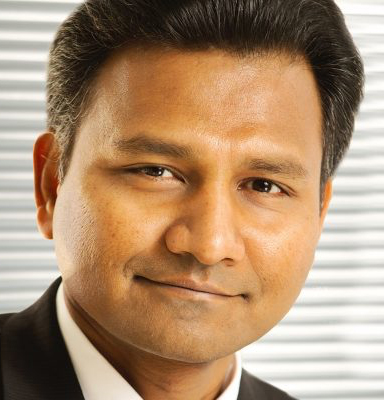Mr Gokul Kanda Swamy
Consultant Urological Surgeon, Morriston Hospital, Swansea
 "I completed my urology training in India and moved to UK with the dream of becoming a robotic pelvic cancer surgeon. I worked in the West Midlands for 4 years as Staff Grade, because I could not enter training due to Visa restrictions. I did manage to gain good open pelvic surgical experience, consolidated my laparoscopic skills and finished my FRCS exams but becoming a Consultant and robotic surgeon remained an unachievable dream. The real breakthrough happened when I moved to Cardiff for an Oncology fellowship with Prof Kynaston, Mr Hughes and Mr Narahari.
"I completed my urology training in India and moved to UK with the dream of becoming a robotic pelvic cancer surgeon. I worked in the West Midlands for 4 years as Staff Grade, because I could not enter training due to Visa restrictions. I did manage to gain good open pelvic surgical experience, consolidated my laparoscopic skills and finished my FRCS exams but becoming a Consultant and robotic surgeon remained an unachievable dream. The real breakthrough happened when I moved to Cardiff for an Oncology fellowship with Prof Kynaston, Mr Hughes and Mr Narahari.
Within my one year of fellowship, I had many international conference presentations, indexed publications and research & trials involvements. I was the first fellow since the robotic service started in Wales. I was trained systematically on the robot and, towards the end of the year, was confident to do the procedure. I also had enough exposure to open surgery, gaining more experience; so much so that I never had to be mentored in any open pelvic surgery once I started as a Consultant.
During my stay in the West Midlands, trainees worked with one Consultant at a time which limited their access to theatre exposure and training. In Wales, I noticed that each trainee worked with two Consultants at any point of time. They all had a good volume of core urology training, and senior trainees dedicated their last year or two purely to sub-speciality training like pelvic oncology including the robot; within their standard training period, Welsh trainees are both core and speciality trained, while many trainees elsewhere still struggle to finish their indicative numbers and requirements.
As a Staff Grade I had to take the CESR route to become a Consultant. The Welsh deanery and SAC were particularly helpful in this. They kindly reviewed my portfolio, along with trainee SpRs during annual ARCP, and gave a letter of recommendation for CCT and entry into specialist register. This really strengthened my case for acquiring CESR. In fact, I was appointed in my present role in ABMU health board as Locum Consultant, when waiting for completion of the paperwork, and had an honorary contract with CAV Health board, where I was a fellow, to start my robotic surgery career as well. Not just my trainers, but my present day Consultant colleagues, were also instrumental in crossing the hurdle of acquiring CESR.
Its not an over-statement to say that the trainees in South Wales are among the blessed ones, as they have a very well-structured training programme with plenty of opportunities, both academically and surgically, with very friendly and welcoming trainers. I am proud, now, to be part of this process. I am well supported, not only in my field of clinical work but also for spending time in tutoring for the University of Edinburgh and being a member of the faculty for Urology Boot Camps, FRCS exams, clinical trials etc.
I take this opportunity to welcome young aspiring urology trainees to come to Wales - and Consultants as well - to be a part of this wonderful family."
Mr Ayman Younis
Consultant Urological Surgeon, Morriston Hospital, Swansea
 "I started my early surgical training as a Core surgical trainee in ABMU LHB (formerly known as Swansea NHS Trust). Part of my early training as a surgical SHO was in the Urology Department in Morriston Hospital during which I was preparing for my surgical membership exams. I enjoyed excellent support from my seniors at the time and I successfully passed the exam.
"I started my early surgical training as a Core surgical trainee in ABMU LHB (formerly known as Swansea NHS Trust). Part of my early training as a surgical SHO was in the Urology Department in Morriston Hospital during which I was preparing for my surgical membership exams. I enjoyed excellent support from my seniors at the time and I successfully passed the exam.
The support did not stop there, but rather continued to help me step up to become a urology research registrar in the same department for 18 months. During this time, I gained sound basic surgical and diagnostic skills and was equipped with the necessary clinical and academic experience to compete in the urology national selection process.
I was fortunate to win one of the limited available training places at the time, but I had to leave South Wales to continue my training away. All through my higher urological training, I applied the same high standards of care I gained during my early years of training in Swansea. Having completed my training away, I was very privileged to return and join the urology team in Morriston as a Consultant Urologist.
I am now enjoying long-lasting professional and social relationships with great colleagues. I practise with the same high standards of care I gained in my early training years. Moreover, I am delighted to take the lead managing patients that I used to look after during my early years of training."
Mr Paul Cathcart
Consultant Urological Surgeon, formerly at University College London Hospital, now at Guy's & St Thomas' NHS Foundation Trust

"I completed my specialist urological training in the South Wales region, having been a core trainee and research fellow in the London region. Prior to starting in South Wales, I had very little knowledge of the region, in terms of the local geography or the working environment. However, having worked for 4 years throughout South Wales, I can thoroughly recommend the region to any would-be urological trainee.
"Urological training in South Wales is of the highest quality. As there are relatively few trainees, there are more training opportunities. For example, over a four-year period, I performed more than 400 endoscopic procedures including over 150 transurethral prostate resections (TURP), 80 laparoscopic renal procedures and more than 200 major open cancer operations. At each stage of my training, my trainers were extremely supportive, taking me through the nuances of each different procedure. There was a wide breadth of urological subspecialities in which to train and I was given considerable flexibility to enable me to tailor my training to my chosen subspeciality, urological oncology.
"There is a well-developed teaching programme within the region. Trainers are very much engaged in the training process and this has enabled the region to boast a very high pass rate in the FRSC Urol final examination. Research was also encouraged for those trainees that demonstrated an interest in this area. Professor Kynaston, lead urological surgeon at University Hospital Wales, and member of the faculty at Cardiff University, has a mature programme of exciting work in the molecular and cellular mechanisms of cancer invasion and metastasis, which has provided considerable opportunity for urological trainees to develop their interest in research, as well as to attain higher degrees. Thanks to a network of links between urological units in South Wales and Australia/New Zealand, a number of opportunities exist for trainees to go on fellowships abroad. Personally, I benefited from having spent one year in a prestigious fellowship under the guidance of Professor Tony Costello in Melbourne, Australia.
"Overall, the urological training in South Wales is of the highest quality, providing an excellent basis on which to enter Consultant practice. The trainers are extremely welcoming and I would recommend the region to any would-be urological trainee."
Mr Herman Fernando
Consultant Urological Surgeon, Royal Stoke University Hospital, Stoke-on-Trent
 "I was a Clinical Research Fellow for Professor Howard Kynaston & Professor Wen Jiang in the University Hospital of Wales, Cardiff, between 2006 and 2008.
"I was a Clinical Research Fellow for Professor Howard Kynaston & Professor Wen Jiang in the University Hospital of Wales, Cardiff, between 2006 and 2008.
"With a very limited research background, and limited clinical experience (as an SHO), I was nervous about taking this competitive post. However, all my predecessors were successful in their research, and had secured numbers in the South Wales rotation. The research team were immensely supportive to mne throughout this period and, by the end of it, I had completed my research and submitted my thesis.
"I was sponsored by the department to go to the American Association of Cancer Research (AACR) Annual Meeting to present my work. On the publications front, I had put my work in to a few journals including the Journal of Urology. I set up the Radical Prostatectomy and Early Prostate Cancer databases during my stay. On the clinical front, although a research fellow, I was given four clinical sessions to work with Mr Owen Hughes & Professor Kynaston. Towards the second half, to accommodate my training needs (in a non-training post), I was provided with a day-case list to develop my endoscopic skills to the level of a ST3, directly under Consultant supervision. At the end of stay, my CV had improved so much so that I was short-listed and interviewed in four deaneries. It is important to re-iterate that this happened purely because of the support and constant guidance provided by all the Consultants and SpRs at that time.
"When I started my ST rotation, the clinical experience I gained was of such great help that I could confidently handle the day-to-day out-of-hours emergencies without the need to call the Consultant in. The South Wales rotation is a closely knit unit and everyone gets to know you in the first few months. I looked forward to the Welsh Urological Society meetings which provides a good platform to keep colleagues updated with your research work/clinical databases, as well as providing an opportunity for networking. I have attended every BAUS Welsh Urology Dinner since I left Cardiff and these events are a great time to catch up with the people who were my mentors and SpRs.
"I am proud to have spent an important part of my Urology training career in UHW, Cardiff."